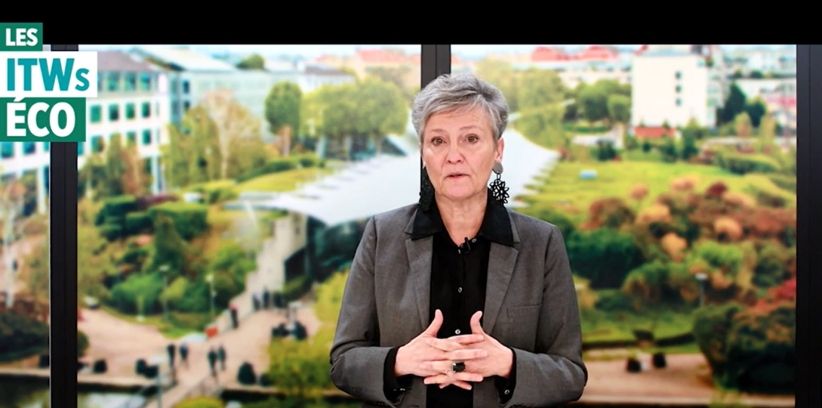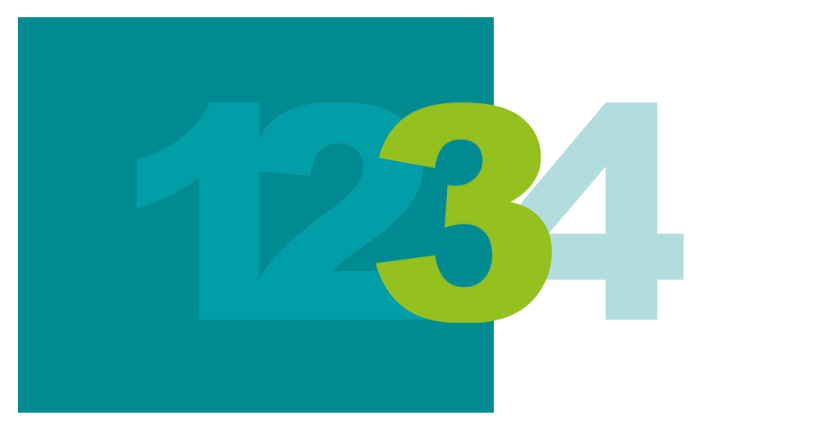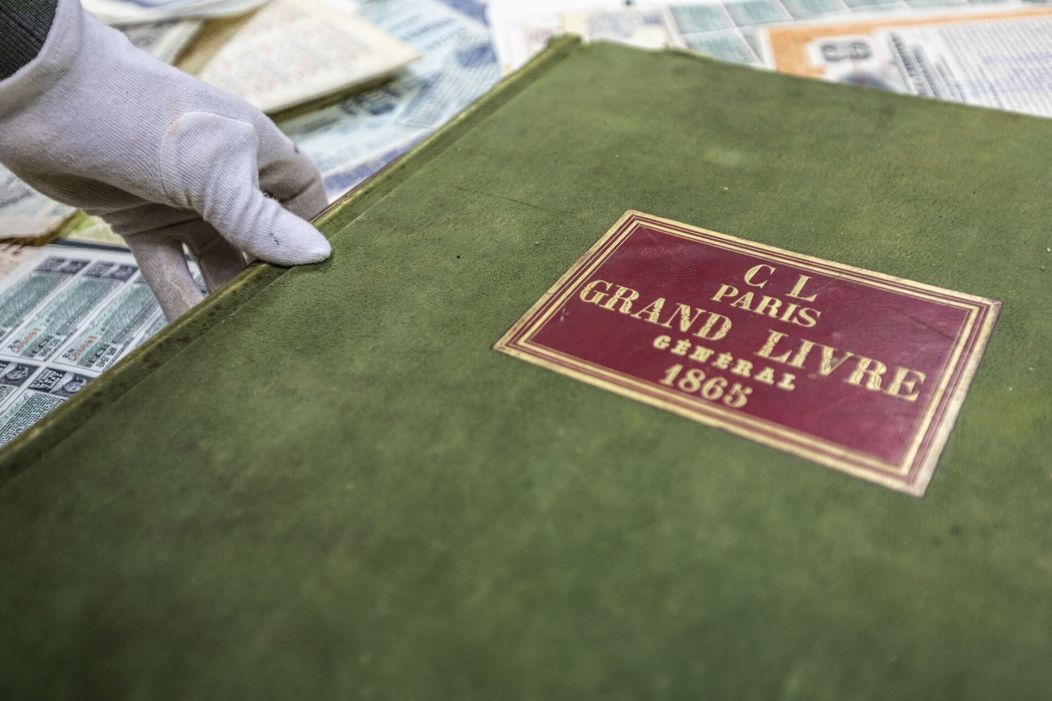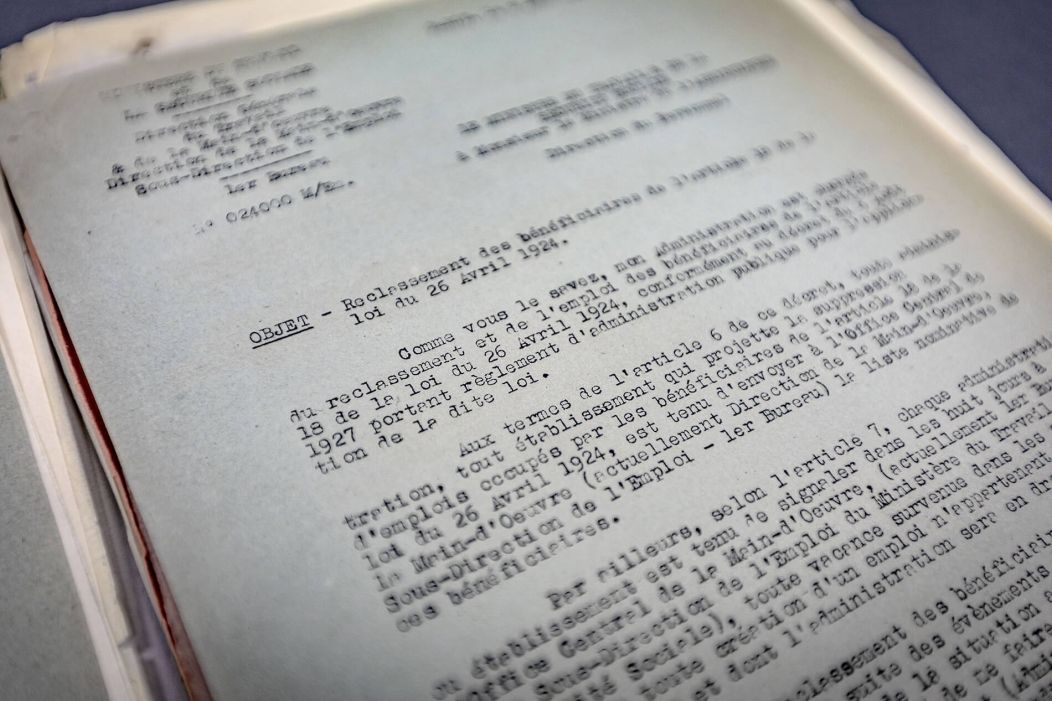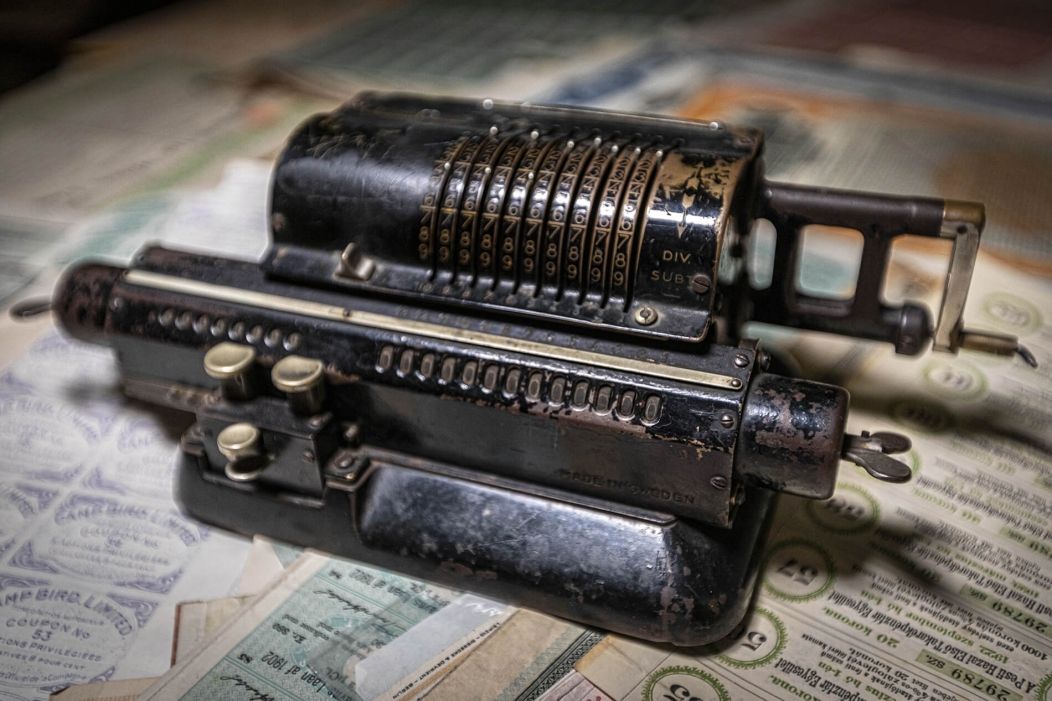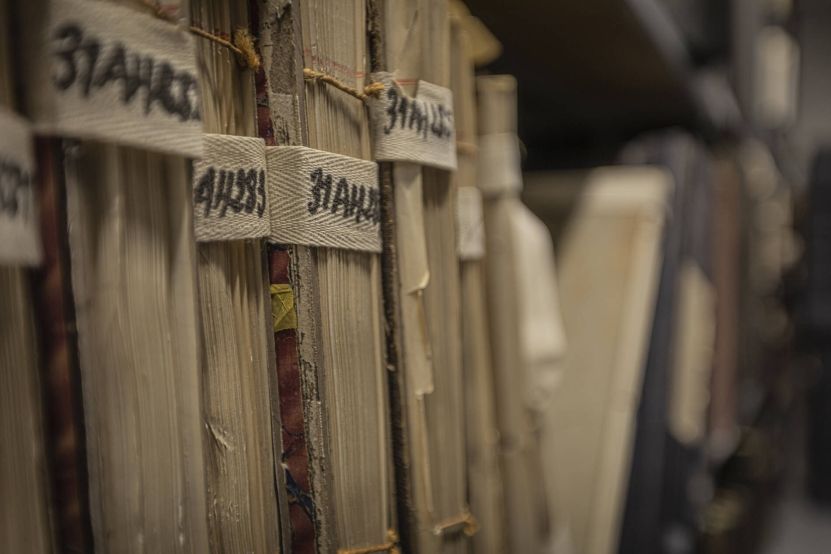
Crédit Agricole S.A.’s department of historical archives
9 June has been designated International Archives Day in order to spread awareness of the role of archives and the work of archivists. This is an opportunity to discuss how the Group draws on its history and to present the initiatives of Crédit Agricole S.A.’s historical archives department.
The usefulness of history for a company
In addition to communicating documents necessary to the protection of the company’s rights or to enhance strategic discussions on specific markets or geographic areas, the historical archives are essential to understanding and promoting the Group’s history. Reconstituting this history is no easy task, however, and does not aim to promote a facile nostalgia or a sense of the company’s identity as fixed and unalterable. On the contrary, it is important to identify both the disruptions and the continuity that have shaped the Group in order to explain its present and prepare for its future.
For Crédit Agricole, the formal establishment of its raison d’être in 2019 drew largely on its history, which allowed the company to provide evidence of its societal engagement from its earliest roots: supporting agricultural and rural workers at a time when these groups still represented nearly half the population, providing them access to banking services, offering financial solutions to improve their quality of life, etc. The Group’s development over time allowed it to adopt a universal banking model.
But without archives, there would be no witnesses to this history and no evidence of it. By consulting these archives, professional historians can reconstitute history in an academic form and develop relevant ways of using it. The company then takes this material and distributes it in more accessible forms. In the case of Crédit Agricole, for example, the recent book by professor Hubert Bonin retracing the period of 1950-2001 was followed by the production of short films aimed at a wider public, presenting challenges that the Group has faced throughout its history. The same is true of an exhibition retracing the 100-year history of the central body, which we hope to be able to present to you in September.
Promoting our history and making it more accessible also allows us to create a sense of belonging among employees, in particular new hires. Key moments, notably the founding of Crédit Agricole in the Jura at the end of the 19th century, explain the Group’s current operating model: mutualist and cooperative, shaped by the values of the regions and alert to changes in society.
And yet, we must remember that history is more than a fixed origin story. Presenting the continuity as well as the disruption and innovation of the past is key to elucidating the Group’s current activities. For example, Crédit Agricole’s position vis-à-vis young people takes on even greater meaning when we consider its development over the long term. It is the fruit of a nearly 100-year-long history. The same can be said of the recently implemented TourismeByCA platform, which uses new methods to continue the initiative to promote local tourism that was launched in the 1960s. Finally, each entity can reconstitute its own history in order to better understand its role in the general history of the Crédit Agricole Group. This initiative was carried out several years ago by Crédit Agricole Leasing and Factoring and, more recently, by several regional banks (La Réunion, Pyrénées-Gascogne, etc.).
Crédit Agricole S.A.’s department of historical archives
Crédit Lyonnais; that of Crédit Agricole CIB and its ancestor companies, notably Banque de l’Indochine and Indosuez. The department’s role is to carefully collect, preserve, inventory and communicate documents, in any medium, that are necessary to protecting the rights of the Group and to the reconstitution and illustration of its history. These archives represent nearly eight linear kilometres of paper files as well as over 3,000 posters, over 2,000 films, over 10,000 photographs and a few hundred objects. In addition to these physical elements, the archives include more than 12 TB of digitised or natively digital documents.
The management of these archives involves major logistical operations, both in terms of the transport and storage of boxes or objects and the preparation of digitisation operations by specialised service providers (digitisation of old documents, celluloid films, posters, etc. to preserve heritage). Similarly, categorisation and inventory operations require the application of strict archival standards and contribute to the development of large databases. All these aspects of the profession that may seem a bit tedious are nevertheless key to the traceability of information and documents, and to the use of this history.
A broad scope of distribution
As mentioned above, the historical archives department manages the archives of three entities only. The regional banks and the other subsidiaries manage their archival and historic material in an autonomous manner. However, the historical archives department regularly provides them with iconographic documents or data related to their history in the context of their communication projects. Historical documents and notes were, for example, transmitted to the Crédit Agricole CIB location in Hong-Kong for an exhibition held in 2019 to mark the 125th anniversary of the Group’s presence in the region.
The historical archives department is also a partner of the Fondation Maison de Salins and regularly provides content to its web portal.
These documents, which the CNCA collected as part of its control activity, are available to web users and, more broadly, as a resource on the history of the cooperative world, which aligns with the Foundation’s mission (https://collections.maison-salins.fr/s/patrimoine/page/accueil).
Usefulness outside the Group
The reading room of the historical archives department is open to outside researchers, primarily from universities, who come to consult archival files. The majority of these researchers are specialised in economic history, corporate history and financial history. The files made available to them allow them to enhance their understanding of subjects far broader than the history of our Group. Importantly, these archival collections have been well known to academic researchers for some thirty years. The Group’s archives are therefore part of a broader history and even shed new light on certain fields of research. Crédit Lyonnais’ archives, for example, have contributed to a new understanding of the financial crisis of the 1930s in France. We have also seen that our history is inextricably linked to that of the country and of society.
This last observation echoes our raison d’être: “Working every day in the interest of our customers and society”. The historical archives department not only allows Crédit Agricole to provide evidence of its actions, but also encourages the development of academic, societal and citizen perspectives on its history.
To access selected content from the historical archives:
You can learn about the history of the Group here: Click here!
Our intranet site is a bit outdated but still provides access to many resources, including:
- All annual reports of the central body of Crédit Agricole since 1910: Cliquez ici !
- Collections of videos (advertisements, magazines) and digitised newspapers of Crédit Agricole and Banque Indosuez: Cliquez ici !
To access the collection of reports on the regional banks’ General Shareholders’ Meetings from 1899 to 1966, visit the portal of the Fondation Maison de Salins:Cliquez ici !
Finally, if you want to see old photographs and historical information on the branches of Crédit Lyonnais, follow Cédric Leauthier’s LinkedIn account:https://www.linkedin.com/in/c%C3%A9dric-leauthier/


